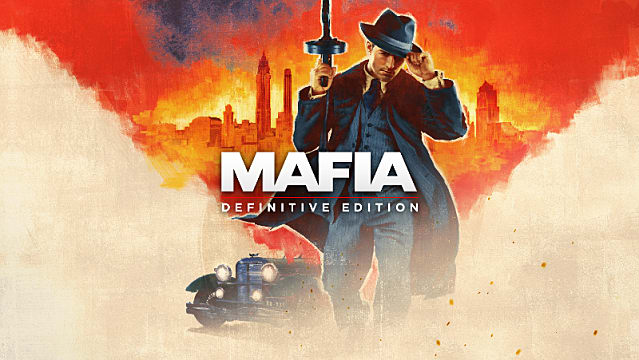

It was nearly two decades ago when Mafia initially launched, and since then, it's inspired two sequels in 2010 and 2016, respectively. In each case, the games have stood as narratively exceptional but ludologically lackluster.
Like Made Men who sit and smoke cigars around the Don, Mafia: Definitive Edition respects its long-standing traditions and doesn't step out on its franchise family.
In this visually stunning remake for PC, PS4, and Xbox One, fans of the series won't find a game that rises above the blunders of its predecessors. Still, they will share in a story from a team that seems to take its oath as storytellers seriously, holding it in as high a regard as the Omerta itself.
Mafia: Definitive Edition Review — A Family Tradition
Mafia: Definitive Edition is a built-from-the-ground-up remake of the 2002 cult classic. Those with long memories won't find much difference in the script, but it's chiefly worth experiencing for its writing all the same.
The game casts players as Tommy Angelo, a cabbie in Lost Heaven, the game's Chicago analog. Tommy gets caught up as the reluctant getaway driver for a pair of mobsters in the early going and soon finds the pull of this new way of life is too strong to resist.
Before you know it, players will be years-deep into Tommy's exploits as he works the city for its various high-risk, high-reward angles to serve Don Salieri. Like other Mafia games, the story in Mafia: Definitive Edition is nothing short of a saga. Being with Tommy for many years, beginning near the end of Prohibition, is a fascinating look not just into Tommy's life, but the allies, enemies, and most of all, city around him.
Lost Heaven is gloriously remade for 2020. Just as Mafia 2 and Mafia 3 faithfully capture post-WWII New York and civil-rights-era New Orleans with Empire Bay and New Bordeaux, respectively, this Chicago stand-in is richer with atmosphere than virtually all other period pieces in games. It stands tall alongside greats such as Red Dead Redemption and L.A. Noire.
Turn on the radio, and you'll hear addresses from the president, seemingly pulled from real-life historical archives. Feel the thrill of frantically evading the cops through a Hooverville. Walk the streets and catch newspaper barkers selling you headlines ripped from the game's amalgam of history and fiction.
All the era's bright lights and blemishes are on display, and the city is a joy to witness from opening to closing credits.
Perhaps for that reason, it's strange Hangar 13 didn't put much of anything in the world. In this way, Mafia's open-world feels more like a sandbox of mostly just sand, with very few toys, but it's not unlike the series to do this.
Mafia 2 took a similar approach, and while its emptiness feels starkly different than the cluttered maps of three dozen Ubisoftian open worlds since 2010, it was Mafia 3's own attempt to fall in line with modernity that maybe led Hangar 13 back to basics. That 2016 sequel left people feeling nauseous from repetitive side missions.
So, besides some well-hidden collectibles and the ever-present invite to soak in the atmosphere, the game's Free Ride mode, unlocked after the first chapter, doesn't offer much of anything for players. I didn't mind because the story is so exceptionally well done. It's all I cared about, and it led to me finished the roughly 15-hour story in two days.
Angelo's story is, like Lincoln Clay's or Vito Scaletta's before (and, technically, after) him, fascinating. Characters speak naturally in a way that I vividly recalled from the series' earlier entries. They, of course, look better than ever, with some nuanced facial animations that help deliver each scene's emotional weight. They're perfectly suited for the many gut punches, literal and figurative, of a mobster's life.
It's the authenticity of the dialog that had me most appreciative of the story as I swiftly moved through its 20 chapters. I was regularly in something close to awe at how well written the game is, letting character performances shine and leaving things unsaid for the player to understand, rather than have it spoon-fed.
Even as games have gotten so much better at telling stories over the past two generations, the writing in Mafia: Definitive Edition still feels like a remarkable outlier in an industry that tends to value the Rule of Cool over realism or nuance.
But in 1930s Lost Heaven, the cars will never be all that fast and flashy, and the weapons will never get so destructive that the Rule of Cool is even in the field guide. Hangar 13 knows this and plays to the strengths of the period's subtleties. That's not to say the missions are a bore. They're not. But like before, Mafia: Definitive Edition lets a scene play out slowly, giving players the sense that they aren't so much avatars in a virtual toybox but more like actors with a role to play.
Even in the open world, the game likes when you do some things in specific ways, like evading cops using one-off obstacles. You have a freedom to move about the city and sometimes even through a mission how you see fit, but ultimately, the game does seem to favor a Right Way to do things, which can feel jarring, albeit still effecting, in a big, open cityscape.
Gunplay feels a lot like Mafia 2 rather than Mafia 3. In the latter case, Lincoln Clay's history as a special operations soldier shined in his killer instinct and hard-charging, overpowering nature.
But Vito Scaletta, and now Tommy Angelo, don't have that same frame or ruthlessness. Thus, Tommy can feel a bit stiff at times, and the cover system doesn't always work as well as it should, especially on higher difficulties where Tommy may not get down or sprint to the next bit of cover as seamlessly as you'll want.
Similar to how early survival horror can actually benefit from some janky controls by leaving the player feeling powerless, I found some of the stiffness in gunplay felt strangely at home in the 1930s, where no one had ever seen a more effective firearm than the Thompson. Maybe that's me excusing the game's deficiencies, but I just never felt like it broke things too much, even if it's certainly noticeable.
After the game was delayed and both Mafia 2 and Mafia 3 had issues with bugs, I was worried Mafia would suffer a similar fate, but in my experience, that's hardly the case.
An early section saw some of the road's textures disappear beneath me and a mid-game cutscene got stuck without audio or video. The only way I knew it was happening at all was because the subtitles continued to run. It's unfortunate in a game that rests its case on story first and foremost, but it happened once and never again, so I found it forgivable.
Mafia: Definitive Edition Review — The Bottom Line
Pros
- An exceptionally well-told story
- Masterful dialog and great facial animations sell every scene
- Great voiceover work from the whole cast
- Rich with atmosphere
Cons
- Open world leaves something to be desired
- A few minor glitches
- Gunplay feels a bit stiff
Mafia: Definitive Edition tells a story much like the series has become known for, in more ways than one. In a literal sense, its actual plot, setting, and characters are some of the most gripping you can find in the medium, begging to be played in a hurry like a binge-worthy TV series. But the legacy issues of the franchise spoil some of the game's lasting appeal once again.
I don't want a Mafia world cluttered with hundreds of things to do like some open-world games offer, but Mafia: Definitive Edition has virtually nothing to do once the admittedly great story concludes.
There seems to be a happy medium still yet to be found for this series, but I definitely hope someone gets a chance to find it. If nothing else, I'm sure experiencing another story in this franchise will be an offer I can't refuse.
[Note: 2K Games provided the copy of Mafia: Definitive Edition used for this review.]
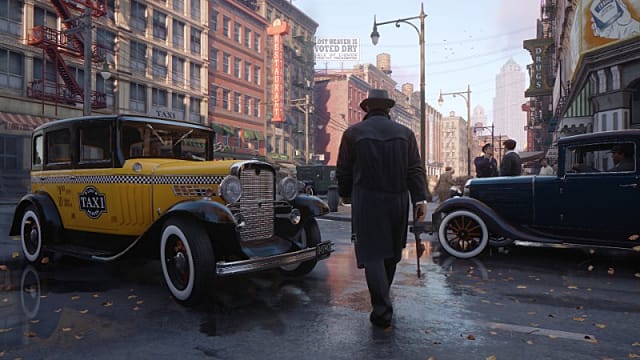
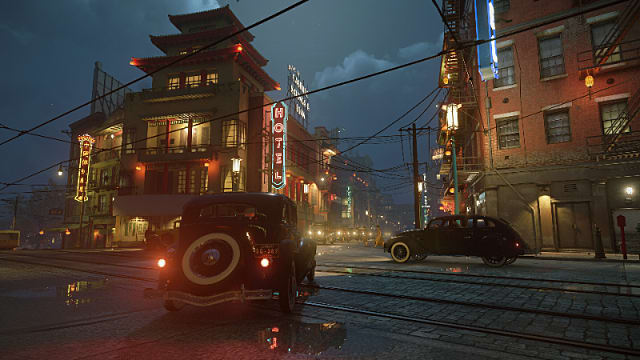
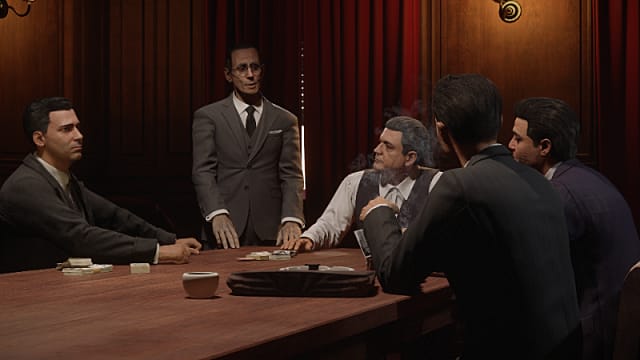
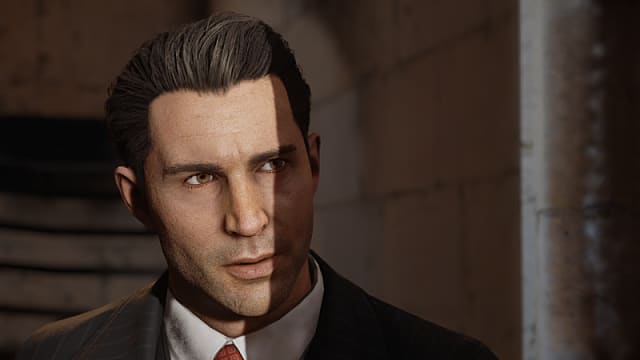
0 comments:
Post a Comment